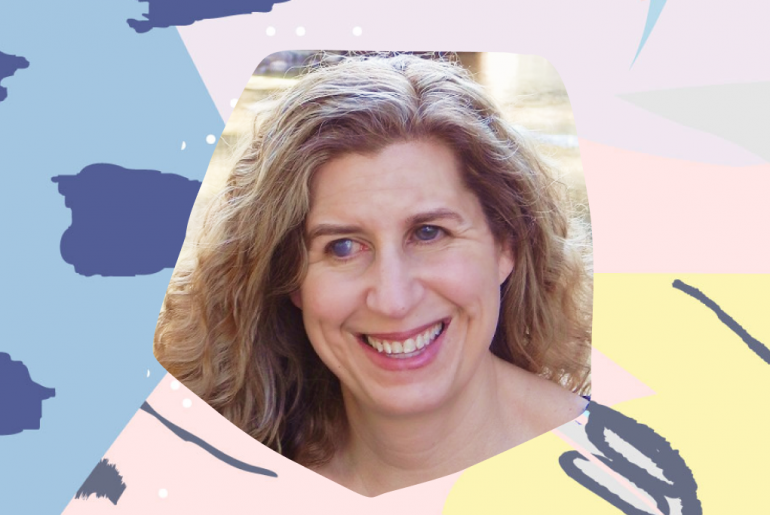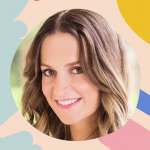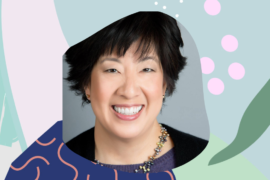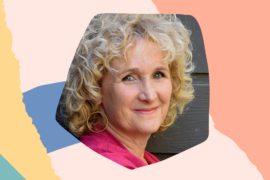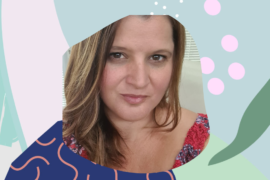Key Takeaways
- How Bree created her first online platform to empower women building their music careers.
- Why Bree wasn’t happy with her first online course – and how it naturally led her to embrace the membership site model.
- Why you need to have a framework in order to build an effective membership site.
- The greatest unforeseen gift Bree has received through her membership site.
- Why solopreneurs often shut themselves down – and how to get past those feelings to build the business of your dreams.
Free Give
FREE Guide – Launch & Grow a Profitable Membership Site
Ready to reclaim your time and attract more monthly paying customers? Our step-by-step guide will show you how to build a membership site that turns your passion into recurring profit. Click here to download!Memorable Quote
- “A lot of times, musicians don’t even realize that they have a business. They’re just making music and they hope they make some money someday. So, I’m helping them learn how to market, act like a business, handle their finances, and just be confident like CEOs of their music career.” – Bree Noble
- “It’s easy to get into a rut because oftentimes we’ll disregard something as not possible without actually taking it off the shelf. We’re trained to think, ‘Well, this is what I need. This is how things are done.’ It’s often most beneficial for us to untrain and unlearn so that we can be uncommon and unconventional. That sometimes is the path to the freedom to be able to pursue your calling and create something that hasn’t been created before.” – Bree Noble
Episode Resources
Transcript
Read The Transcript
Shelli Varella: Bree Noble, welcome to the It’s a TRIBE Thing Podcast. How are you?
Bree Noble: Thank you. I am so excited about this.
Shelli Varella: I’m super excited about this, as we were just discussing, because I am a huge music lover. I’m a huge art fan. And when I read your profile of who you are, what you’re doing, who you’re serving and what you’re up to in the world, I just thought, “Man, oh, man, this is so needed and finally somebody is creating something that allows us to appreciate the art and music that we love.” So, with that said, I’m wondering if you can share with everybody what it is you do exactly and who you serve.
Bree Noble: Absolutely. So, I’m a musician myself and I serve other musicians and that I also have a background in business. So, I help them to learn how to think of themselves as entrepreneurs and businesspeople because a lot of times musicians don’t even realize that they have a business. They’re just making music and they hope they make some money someday. So, I’m helping them learn how to market and act like a business and handle their finances and just be confident like CEOs of their music career.
Shelli Varella: I love it. And how did you come to be that person? Like, what’s your backstory when you take us way back before the business, the membership site? When you were just a musician, creating, creating music and saw the need for this, who were you then?
Bree Noble: Man, it’s so crazy how it all happened. So, I’m the typical I made this membership to serve, what would have been me, you know, as I had the need myself, and didn’t have anyone to turn to. So, as a musician coming out of college, like I said, I got a degree in music, I also got a degree in business, not because I said, “Oh, my gosh, I need to know business to be a musician,” but because I thought, “Well, what if I don’t get any kind of job in music? I need a fallback plan.” So, I became a business major as well and got trained in management and accounting. And, of course, when I left school, I had no clue how to pursue my dream as a singer-songwriter and start performing and everything and I moved to a new area. And so, I just had to fall back on the fallback plan of I need to go and get a job in accounting and business, because that’s somewhere that I know I can find by looking up in the newspaper.
So, I was in the corporate world and I was working in a company and I wasn’t that excited about what I was doing there so I started looking in the newspaper again and I ended up finding a job as a director of finance at an opera company, which was exciting, because it wasn’t my style of music. I had done it in school. I had some classical, but I really wanted to be just a singer, songwriter, and inspirer. But I love being with all these creative people and working in the opera and I was director of finance there for five years. And it was a great experience and working around those creative people but also it just made me, even more, want to do what I wanted to do was pursue my own music career, because I saw these opera singers out there living their dream, and I was handing them paychecks, and I was not doing what I wanted to do. So, it really pushed me into you need to figure this thing out. And I’ve been trying to do all this on the side trying to like figure out where I fit into the music business, tried to join all these different bands that ended in disaster, and not really understanding how I could build a music career, because I hadn’t figured out how to actually marry my business knowledge with the music side.
So, once I left the opera because I had a child and I was kind of working from home, I was able to spend a little time just really deep diving, thinking about how would you build a business as a musician. And I started applying a lot of what I knew about marketing and business to my music career just like you would any business. But it was like this mind shift that it took for me to even think of it as a business. So, as I was doing this, I met a lot of other amazing female independent artists as I was out on the road and performing and I thought, “How come there are not that many female artists on the radio when I listen and why can’t I find that many female artists performing live at like bigger venues and stuff?” And so, I decided that I wanted to just kind of band together as female artists and create this platform that was called Women of Substance Radio. It was an online radio station back in 2007. And that was my first foray in kind of into the music business. It was very, very small, it was a hobby thing, and I just wanted to promote other female artists.
But it started catching on. It started getting bigger. We became a commercial station, all that. I started building an email list of all these artists that I was helping. And pretty soon eight years in, I had thousands of female artists on my email list. And I kept hearing the same thing from them, that they couldn’t figure out how to get their music out there. They thought they needed a manager or a label, and they couldn’t do it on their own. And it was all the things that I went through for that 10 years of being frustrated not knowing how to build a music career and I’m like, “I can help them. I know where they’re at. I was there.” And so, because I had built this list, just through helping and promoting female artists, I decided to start a membership for specifically female artists to help them to build their music career. That’s when the Female Musician Academy was born in 2015.
Shelli Varella: That is an amazing story. And I love it too because, specifically, this is the perfect example of sort of what I like to call roots and wings. So, many people are either lean significantly on the creative side or significantly on the logical side. And I love that there are people like you out there that are able to marry the two. And so, on the root side, you have the practical, tactical, business prowess and the degree and the understanding of how that works. And on the wing side, you have the creativity and the art and the visionary-ness, if that’s a word. But the ability to marry the two is an incredible gift because not very many people are wired like that. But the greatest gift to all of us with what you’re doing is those musicians that whose art would not be sustainable, is now not only sustainable for them, for themselves for their lives, but now we have the gift of getting that music.
Bree Noble: Yeah. I mean, the music was so amazing, and it just frustrated me that the world wasn’t getting to hear it because they didn’t know how to get the word out. They didn’t know how to make any income so they weren’t going to be able to continue to make music. So, my main focus with the Academy is teach them how to get fans, teach them how to make some money. I’m not saying that they have – some of these people are doing this on the side. They don’t have to make millions of dollars. They don’t have to become famous. They just want to sustain their craft and be able to do what they love.
Shelli Varella: What is the biggest piece of feedback or your most rewarding piece of feedback that you have received as a result of creating this?
Bree Noble: You know, there are so many and the thing that I love is actually not like these huge wins, like someone becomes famous or anything or somebody that I worked with on The Voice. I don’t care about that as much. It’s just the small wins, where somebody is like, “Wow. I tried doing house concerts and like, this is my jam. I had never done this before, and I still love it. I’m going to do a whole tour and I’m so excited about it.” Or I started doing Facebook Lives and now I’ve built up this audience where I can actually do a crowdfunding campaign because I created a connection with them over Facebook Live. And then never having done that before, but just my encouragement and teaching them how to do it, they were able to do that. It’s just so rewarding to me. So, I really like to celebrate all the small wins, because those really compound into big wins.
Shelli Varella: Absolutely. So, when you were starting on your journey and you realize that you had the skill set to solve this problem, what was it that led you to a membership site specifically? Did you try something before the membership site? So, what ultimately led you there? And what did that feel like when you were starting to create it?
Bree Noble: Oh, my gosh, I have kind of a weird journey with this. So, I immediately started with a membership site and I did a presell like I had nothing inside of there. And because I had had this list of all these female artists, and they’ve known me and trusted me, I was able to presell 18 spots of founders. And so, that allowed me to be able to start building out some things inside and get some feedback from them, but then I was having a hard time getting traction. I hadn’t figured out like the right launching mechanism and all that stuff and so I semi-abandoned it. I still had it, but I was like maybe what I needed to do is a course. And so, I created a course called the Indie Music Profit Plan and it’s sold well, but I found that I wasn’t as excited about it, because people saw it as a one-time thing and they didn’t like stay connected and I couldn’t continue to see their wins and continue to help them. What I really wanted was to be able to help with the longevity of someone’s career over time. And so, I didn’t like the course because like they just kind of fell off the map when we were done with the course.
So, that actually was an experience that made me think, “You know what, what I really want to do is to just really build out this membership site.” It was still there, but it wasn’t growing very large and that was when I joined TRIBE and learned a few things that really helped me figure out how to make my membership site something that could really appeal to people and show them that I had the solution for them.
Shelli Varella: What’s the biggest piece of advice or tip you would give somebody who is say in your position, they’re thinking like, “I have this idea. I have this creative thing that I want to get off the ground, and I want to start a membership site,” but really kind of are looking down the barrel of starting and don’t know what to do first or where to go? What advice or tip would you give them based on the experience that you’ve had?
Bree Noble: I think the biggest thing is to build out a framework. That’s what I did when I relaunched the Academy, because I realized I had a bunch of random courses inside of there and I had like two times a month I would go on Zoom and I would help them but there wasn’t an organized like success path of, okay, do this first, then do this, then do this and these benchmarks of like now you’re moving to this stage. So, I created my five stages of music career growth and it really helped them see themselves in it like they could say, “Oh, I’m in stage two,” and then they would know exactly what section of the site to go to and what to do next. And it made it easier to promote it and sell it as well and it also kind of created this culture and this language where they would say like, “Oh, I’m in stage two or I’m in the promotion stage,” and it would be like we’re speaking the same language. And so, it’s kind of that little bit of like proprietary thing where now your members are kind of out in the world even like outside of the membership saying like, “Oh, I’m in the promotion stage,” and other people like, “Oh, what does that mean?” and then it kind of brings them into the conversation.
Shelli Varella: What does that feel like for you as somebody who’s created that and they’re out there self-identifying with this framework that you’ve dreamed up, created, executed, implemented, and now you’re helping them do the same thing?
Bree Noble: It’s so awesome. I love it because like you said, they’re self-identifying. So, we can have a conversation on a different level because they already know what the stages mean. And so, I’m not having to like explain everything to them all the time of where they go next. They already know where to go next. They just might need help on some of the tactics or a lot of times too they need help on the confidence to be able to do the next thing or they’re dealing with certain emotions and they’re feeling like maybe that means I can’t do it or I’m not ready. And so, we talked about kind of the emotional stages that you go through inside of those different stages as well.
Shelli Varella: What’s the greatest unforeseen gift? And the reason I’ve asked this is because as I’m listening to you talk about the community you’ve created and I can only imagine with a group of people who have this passion for their art, for their music, and previously, that was not necessarily going to be something that was sustainable or that even they would be able to be in the right frame of mind because say they have to go do a job or they need to make money elsewhere kind of takes that creative juice out of your sails. What is the biggest unforeseen gift that you’ve received as a result of starting this membership site, getting it up and going, and watching people unfold?
Bree Noble: I think the biggest thing is seeing them collaborate with each other because and there’s been people inside the Academy, they’ll be like, “Oh, I want to start this – can we do a songwriting group?” And I’m like, “I’d love to have that, but I don’t have time. I’m doing this, that and the other thing,” and they’re like, “Oh, I’ll do it.” And so, they start a songwriting group. And then I’m seeing it’s this synergy of like now the songs that they’re writing inside the academy, they’re submitting to the radio station and podcasts, and I’m playing them on the podcast and this is like would never have happened without the academy. These people wouldn’t have met each other. There was a couple of ladies in the academy that one of them wrote a book and the other one was like, “I want to write a song that goes with that book. Would you be okay with that?”
Shelli Varella: Oh, my gosh.
Bree Noble: Now she says, “That’d be amazing.” So, then now they have this song and book that go together and it’s just really cool, the synergy that happens in the community.
Shelli Varella: When you were making the switch from business to music, what was the biggest hurdle you had to overcome? Because I hear this actually a lot with people who are oftentimes in a job that is not filling their cup, not filling their soul, but they have this dream, this idea, this thing that they’re passionate about, their calling. What was the biggest hurdle for you as you transition from being in finance and business to saying, “Okay. Like, I’m going to step across this precipice?” Because there are so many listeners that are tuning in right now that want to do what you did. And so, there’s the thing you did, the execution of it, but I’m curious about the internal game with respect to like how you stepped away from one to step into another and what that process looked like for you.
Bree Noble: I think the hardest thing for me, and why all that time I was working at the opera and trying to be in all these other bands, is that I didn’t think that I was enough by myself. I thought I didn’t have enough knowledge. I thought I wasn’t interesting enough. I thought I needed a team or I needed people around me that knew better than I did because I couldn’t possibly know as well. And I think coming from the corporate world, I worked on the executive team, so I felt like I needed to have a team of people. I couldn’t do it on my own. But when you’re starting out, you can’t always have a team of people. When you’re a solopreneur, you haven’t built anything enough that people are going to believe in you enough to come on to a team. So, you have to just be able to step out in faith and say, “I think that I have enough talent that people will come to see me just for me. I don’t need this big, overblown, amazing band. I don’t need all these people on my team. I can just start building this basically one at a time, fans one at a time,” and that’s what I did. But coming from the corporate world, you just don’t even almost see that as a possibility because everything works in teams and you have to have meetings about everything, and you know.
Shelli Varella: I do know, yes. Well, it’s funny, like the world at large teaches us about structures and boxes and how society works and which box we’re supposed to fit into. And I find it really is easy to get into a rut. And someone said one time, the only difference between a rut and a grave is the depth of the hole.
Bree Noble: Oh, man.
Shelli Varella: But it’s but it’s easy to get into a rut, because oftentimes we’ll disregard something as not possible without actually taking it off the shelf and looking at whether it is or whether it isn’t because we’ve been so trained to think like, to your point about, well, this is what I need. This is how things are done. But really, it’s oftentimes most beneficial for us if we can untrain, unlearn, so that we can be uncommon and unconventional. And that sometimes I feel like is the path to the freedom to be able to pursue your calling and create something that hasn’t been created before.
Bree Noble: Yeah. And to get out of that box, sometimes your pain point has to be so strong that you almost you just don’t care, like, “I can’t exist in this box anymore and whatever is on the outside, I’ll face it, because I can’t be in here anymore,” and that’s kind of where I was and that’s where I’m trying to reach my students at. And I reach some of them that are just like, they’re so overwhelmed with all the things that they think they need to do for their music career and they’re just like shutting down. And I’m like, “No, look, here is this path step by step like you don’t have to take in all this information in like have your head explode. Look, this is what you need to do and it’s all laid out for you.” And so, just hitting them at that point where they’re at the height of their pain point, that’s where I want to like pull them out of their agony, and like I was and set them on a path that’s going to work for them.
Shelli Varella: Yeah. I heard someone one time say exactly what you were talking about. You have to let the pain push you until the vision pulls you.
Bree Noble: I like that.
Shelli Varella: If people are looking for you online, where is the best place they can find you?
Bree Noble: The best place is, well, they can check out the membership at FemaleMusicianAcademy.com. They can also go to my website BreeNoble.com. That’s -B-R-E-E-N-O-B-L-E. Not like the cheese. It’s B-R-E-E. And that website it’s called Femusician.com so it really focuses on helping female artists across the board. If you’re male artists, you could absolutely go there, learn, learn from everything but I really, really enjoy working with female artists and creating that community for them where females can have a safe place to go through their struggles and celebrate wins together and all that sisterhood kind of thing.
Shelli Varella: Amazing. Last question for you. What is the biggest impact that this has had on your personal life?
Bree Noble: Gosh, it’s just allowed me to, number one, live wherever I want, like I’m about to move and I’m not worried at all about it because I can still serve my people. I can go on vacation. I can be in the middle of moving and be able to help people because it’s all virtual. So, I don’t stress about my job in that way. And really, it’s also allowed me to bring some amazing people onto my team that I love working with and helped me have a little bit better balance now that things have gotten bigger, so I don’t have to do everything alone. But, as I said, when you start out, usually you are alone but it’s now allowed me to build a little bit of a team, which has been really fun because I do enjoy collaborating.
Shelli Varella: Well, it just sounds like opportunities abound, not only for the musicians you serve, but also for the people that you bring on board to help you do what you do so that you can have the lifestyle that you want as well.
Bree Noble: Yeah. They’re all musicians like both of the people that work for me are musicians so they get where all of the people in our membership are coming from and can speak to them on their level.
Shelli Varella: Incredible. Well, thank you for doing what you do in the world. It is so needed because, I mean, the truth is people talk about starving artists and if the art can’t breathe, the art can’t live. So, thank you for breathing life into the art that people can now sustain. So, I congratulate you, and I appreciate you. Thanks for your time.
Bree Noble: Thank you. You too.
[END]
To learn more and get access to all episodes, visit our podcast page!
